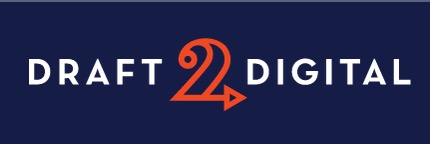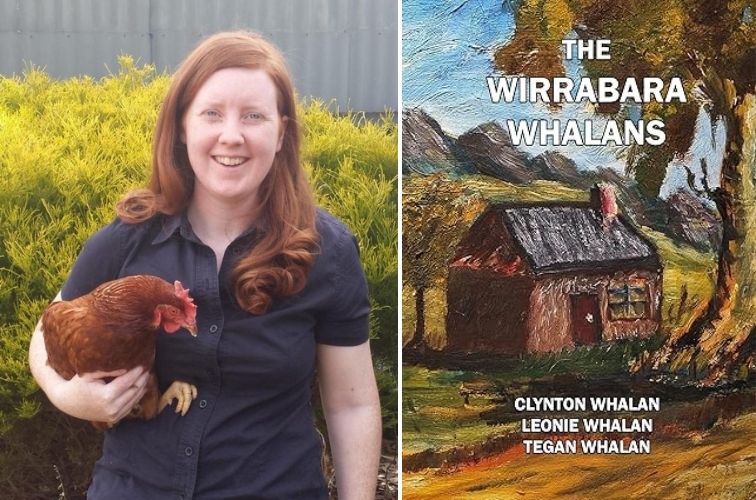Researching And Writing Family History Or Genealogy With TL Whalan
Description
Are you curious about the lives of your ancestors? What secrets might be hiding in your family tree, and where would you even begin to look for them? How do you turn dusty records and vague family stories into a compelling book for others to read? T.L. Whalan shares how she researched and wrote a book about her family history.
In the intro, InAudio.com and Spotify for Authors; The Written Word Podcast from Written Word Media; How to sell 1000 books a month [Author Media]; Vetted services from Alliance of Independent Authors, and Reedsy; Writer Beware for scams.
Plus, Ideogram for consistent Characters; Google Notebook LM video overviews; Gothic Cathedrals; The Buried and the Drowned – J.F. Penn.
<figure class="aligncenter">
 </figure>
</figure>Today's show is sponsored by Draft2Digital, self-publishing with support, where you can get free formatting, free distribution to multiple stores, and a host of other benefits. Just go to www.draft2digital.com to get started.
This show is also supported by my Patrons. Join my Community at Patreon.com/thecreativepenn
T.L. Whalan is the Australian author of short stories, young adult, and middle-grade fiction, as well as co-author of the family history project, The Wirrabara Whalans.
You can listen above or on your favorite podcast app or read the notes and links below. Here are the highlights and the full transcript is below.
Show Notes
- What genealogy is and the motivations for researching your family history
- Why you should always start your research by interviewing living relatives
- Key resources for research, including official records, newspaper archives, and genealogy websites
- The importance of getting family consent and how to handle sensitive information
- The practical challenges of compiling vast amounts of research and formatting a book
You can find Tegan at TLWhalan.com.au.
Transcript of Interview with T.L. Whalan
Joanna: T.L. Whalan is the Australian author of short stories, young adult, and middle-grade fiction, as well as co-author of the family history project, The Wirrabara Whalans. Welcome to the show, Tegan.
Tegan: Thank you so much for having me.
Joanna: First up—
Tell us a bit more about you, how you got into writing, and also tell us about where you live.
Tegan: Sure thing. It's pretty obvious from my accent that I'm Australian. I live in a town called Hamley Bridge, which has only 700 people. It's a country town north of Adelaide in South Australia. My husband and I chose this country life because of our animals.
We have dogs ourselves, but we also run a dog rescue. Last year we started bottle-raising orphaned lambs, and now we run a dog and lamb rescue. Over the last 15 years, we've re-homed about 400 animals.
In terms of my writing, I was one of those people who always said, “I'm going to write a novel one day,” but never really got around to it. Then, in mid-2014, I decided to get serious.
I Googled how to write a novel and discovered NaNoWriMo (National Novel Writing Month). I thought, “Well, that's good because I can wait until November.” So I did exactly that. I waited until November for NaNoWriMo, wrote a novel that year, and I've been writing compulsively ever since.
Joanna: Just on those bottle-fed orphan lambs. They turn into sheep, right? Do you just have loads of sheep?
Tegan: We've got 10 of our own sheep, which are wonderful pets. They're just like dogs; they run up to the fence and want pets and treats. The lambs that we're raising this year, we are finding good homes for, for them to live out their lives as lawnmowers and lovely pets themselves.
My husband's been very happy since we got the sheep. He hasn't had to mow the lawn, so it's been a good addition.
Joanna: Let's get into this family history project.
What is genealogy and why are people so fascinated with it?
Tegan: There are lots of people who are quite into genealogy or their family history, and it's basically the study of lineage. Often people choose to start with themselves and then work their way back, figuring out who their ancestors are.
I think people are fascinated because we're all a little bit self-centered and want to know more about ourselves. When I'm researching my family tree and find a particularly exciting ancestor, I actually do the math and work out how much of their DNA is in me.
It's nice to know that person makes up part of me. So there's that aspect of learning about yourself that I think is really motivating.
Another part of it is the thrill of the hunt; wanting to knuckle down and find information about these ancestors.
Sometimes when you find a really nice tidbit, you get to the point that you go, “I think I might be the only person alive who knows this about this person.” It's a pretty cool feeling to think that you're at that brink of your research.
I've also done family trees for people in my fiction writing. When I've written historical fiction based on true historical figures, I have been known to make a family tree for that person because I want to make sure that I get it right in terms of their siblings, their parents, their aunties, their uncles, the years of their birth, and how old they would be.
Joanna: You mentioned the research and the thrill of the hunt, but how do you research family history? What are some of the resources people might use?
Tegan: There are lots of resources, but I think sometimes people start in the wrong place. I'm a big advocate of starting with people who are alive now and interviewing them to get those stories. When that person passes, that story could potentially be gone as well.
While I agree it's exciting to get as far back on your family tree as possible, if we can start with living people and the resource that they provide, that's a really excellent starting point.
Once we have all the information we can from living people, we can start to look at other resources. As an Australian, a lot of our ship records are really important. For me, it's free settlers, but for plenty of people in Australia, there are convict records.
We have Births, Deaths and Marriages registries in Australia, which are a valuable resource, though there's a different one in every state, which makes it a little bit complicated.
In Australia, we have a newspaper website called Trove; I think the US equivalent is newspapers.com.
Newspapers have a phenomenal amount of information, like birth and death records, engagement notices, marriages, and sometimes even whole stories about a wedding, which will tell you who the wedding party was and what the bride wore.
We have also had to use Freedom of Information (FOI) to get information about some of our relatives. On my father's side, my great-grandfather was charged with being destitute as an 8-year-old boy and was then in what was fundamentally an orphanage.
We were able to seek freedom of information from the Department of Child Prote






